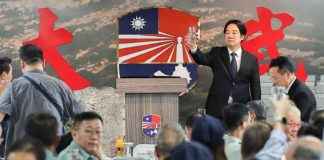Voters in Japan have the power to bring an end to the Liberal Democratic Party’s long-standing dominance in an upcoming general election. The ruling party, led by Prime Minister Shigeru Ishiba, has been in control of the lower house of parliament since 2012. However, recent discontent over a political funding scandal and rising living costs in Japan have put the LDP’s majority at risk.
An opinion survey conducted by the Asahi newspaper suggests that the LDP could lose up to 50 seats in the lower chamber, potentially falling short of the 233 seats needed for a majority. The main opposition party, the Constitutional Democratic Party of Japan, is expected to gain ground and could win 140 seats. This shift in power dynamics could lead to the LDP needing to form a coalition government with other parties, limiting its policy decisions and potentially complicating economic reforms.
Possible coalition partners for the LDP include the Democratic Party for the People and the Japan Innovation Party. The DPP advocates for tax cuts, a policy that may clash with the LDP’s stance. The Innovation Party, on the other hand, has pledged to enforce stricter donation rules to combat political corruption. The outcome of the election will determine the future direction of Japan’s economic and political landscape.
The political scandal involving undeclared donations has been a significant factor for voters, impacting the popularity of Ishiba and the LDP. Despite Ishiba’s efforts to solidify the party’s hold on power, support for his cabinet has declined. If the LDP fails to secure a majority, the centre-left CDPJ could attempt to form a government with other opposition parties. However, the differing policy views among these parties could lead to political instability.
The upcoming election in Japan is not only crucial for the ruling party but also for the country’s future direction. The results will have far-reaching implications for economic policies, foreign relations, and domestic governance. Japanese voters have the opportunity to reshape the political landscape and set the course for the nation’s future.




















